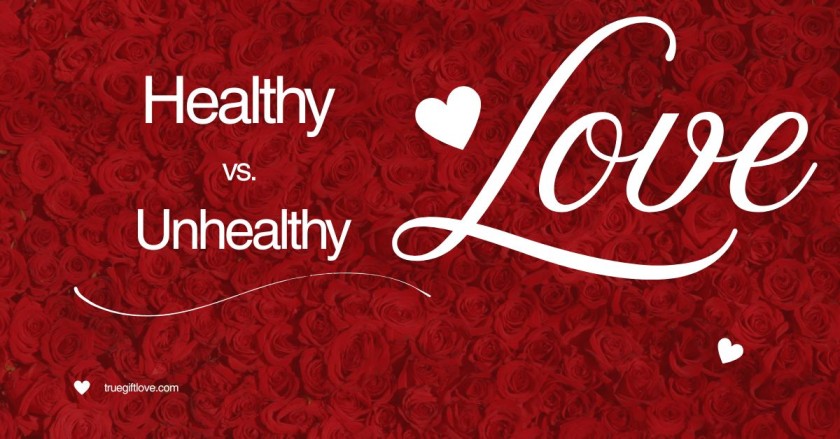Introduction
Let’s face it: most relationship arguments aren’t really about the dishes, the bedroom, or your workload. They’re about unspoken needs—a desire to feel valued, desired, heard, or safe. In healthy relationships, partners learn to identify, express, and respect each other’s needs. That’s not being “needy”—it’s being human. So, how can you tell the difference between healthy and unhealthy needs in a relationship? And how do you talk about them without sparking conflict?
Let’s dig in.
Table of Contents
- Introduction: Why Understanding Needs Matters
- What Are Relationship Needs?
- Healthy Needs: What They Look Like
- Unhealthy Needs: Warning Signs to Watch For
- Examples of Healthy vs. Unhealthy Needs
- How Unhealthy Needs Can Harm a Relationship
- Transforming Unhealthy Needs into Healthy Ones
- When to Seek Support or Counseling
- Conclusion: Building a Balanced Relationship
Why Understanding Needs Matters
- Underneath most conflict lies a core emotional need:
- The dishes aren’t the problem. You want to feel valued.
- Bedroom issues? You may be craving connection and acceptance.
- Arguing about work? You might need to feel appreciated.
- The challenge is, we often don’t realize these needs exist—or we don’t feel safe expressing them.
- But unmet needs don’t disappear. They resurface in arguments, distance, or even resentment.
Healthy Needs Are… Well, Healthy
Here’s what healthy emotional needs look like in a relationship:
1 Respect
Everyone needs it—even those who say they don’t. Respect means:
- Being treated as an equal
- Having your perspective valued
- Speaking with kindness, even during conflict
- Without respect, connection and trust fade fast.
2 Kind, Effective Communication
According to relationship researchers, Drs. John and Julie Gottman found that the first three minutes of a disagreement can predict whether a couple will still be together years later.
Healthy communication includes:
- Vulnerability without blame
- Expressing needs calmly
- Listening without getting defensive
- Validating your partner’s emotions
- This isn’t about being perfect. It’s about being intentional.
3 Appreciation and Affirmation
We all want to feel seen and valued. A simple “thank you,” a thoughtful gesture, or verbal affirmation goes a long way in reinforcing emotional intimacy.
4 Emotional Safety and Boundaries
You should feel:
- Safe to say no
- Confident your boundaries will be honored
- Comfortable bringing up concerns without fear
- This kind of safety fosters honesty and closeness.
5 Accountability and Trust
Trust isn’t just about honesty—it’s about follow-through. If you say you’ll do something, do it. If you make a mistake, own up to it.
Real apologies sound like:
I can see that when I did ___, it made you feel ___. I’m sorry, and here’s how I’ll do better.
Cheap apologies? “I’m sorry you feel that way,” or “It was just a joke.” Those do more harm than good.
6 Forgiveness
Healthy relationships require forgiveness. Holding onto resentment only creates distance. If forgiveness feels impossible, it may be time to talk to a therapist.
7 Affection and Desire
Physical affection and emotional closeness are healthy needs. However, true affection thrives when emotional safety is present. Criticism and contempt? They kill desire.
8 Shared Power and Mutual Influence
Research shows that relationships where one partner (especially men) refuses to share power are significantly more likely to fail. Respecting your partner’s feedback—without shutting down or getting defensive—is key to long-term intimacy.
9 Equality in Responsibilities
Domestic labor, parenting, and decision-making should feel like a partnership—not a burden on one person. Open, respectful collaboration is what makes it sustainable.
Time and Attention
If one partner feels consistently deprioritized, resentment builds. You don’t have to match schedules exactly, but intentionally making time for each other matters. Likewise, some people need more independence. That’s okay too—as long as it’s communicated and respected.
Unhealthy Needs and Red Flags
Not all needs are healthy. Here are a few examples of unhealthy or harmful dynamics:
- Needing constant control over your partner’s actions
- Expecting your partner to read your mind
- Using guilt or manipulation to get your way
- Refusing to ever forgive or move forward
- Dismissing your partner’s needs as “too much” or “too sensitive”
- These behaviors damage trust and intimacy. If they persist, couples counseling can help address root issues.
The Hard Truth: You Both Have Work To Do
Healthy relationships aren’t built by just one person doing the emotional lifting. Both partners need to show up, take responsibility, and genuinely care about the other’s emotional world. If you’ve been waiting for your partner to make the first move, consider this your cue to go first—with honesty, vulnerability, and a willingness to grow.
Start the Conversation
Here are a few questions you can ask your partner (or yourself):
- What does respect look like to you?
- How can we communicate better during conflict?
- What makes you feel appreciated and loved?
- What’s something you need from me that you’ve been scared to ask for?
If you’re not sure how to say it, here’s a line you can try:
“I’m not trying to criticize you—I’m just trying to understand how we can feel more connected.”
Final Thoughts
It’s not needy to have needs. Acknowledging and respecting each other’s needs is what makes a relationship healthy, resilient, and fulfilling. No, it’s not always easy. But if you’re both willing to show up and grow, there’s a real path forward—one where you both feel heard, valued, and emotionally safe.
Frequently Asked Questions (FAQ)
Q1. What are healthy needs in a relationship?
A: Healthy needs include emotional support, mutual respect, open communication, physical affection, and personal boundaries—all contributing to growth and trust.
Q2. What are examples of unhealthy needs?
A: These include excessive jealousy, constant reassurance, controlling behavior, emotional dependency, and fear of being alone.
Q3. Can unhealthy needs ruin a relationship?
A: Yes. When unhealthy needs dominate, they can lead to emotional burnout, codependency, and conflict, often breaking down trust and intimacy.
Q4. Is it normal to have some unhealthy needs?
A: It’s human to have emotional insecurities sometimes. The key is awareness and willingness to work on them.
Q5. How can I turn my unhealthy needs into healthy ones?
A: Self-reflection, open communication with your partner, setting boundaries, and sometimes therapy or counseling can help shift those needs in a healthier direction.
Q6. When should I seek help in a relationship?
A: If your needs consistently go unmet, or if there’s emotional distress, manipulation, or lack of communication, it’s wise to seek professional guidance.




